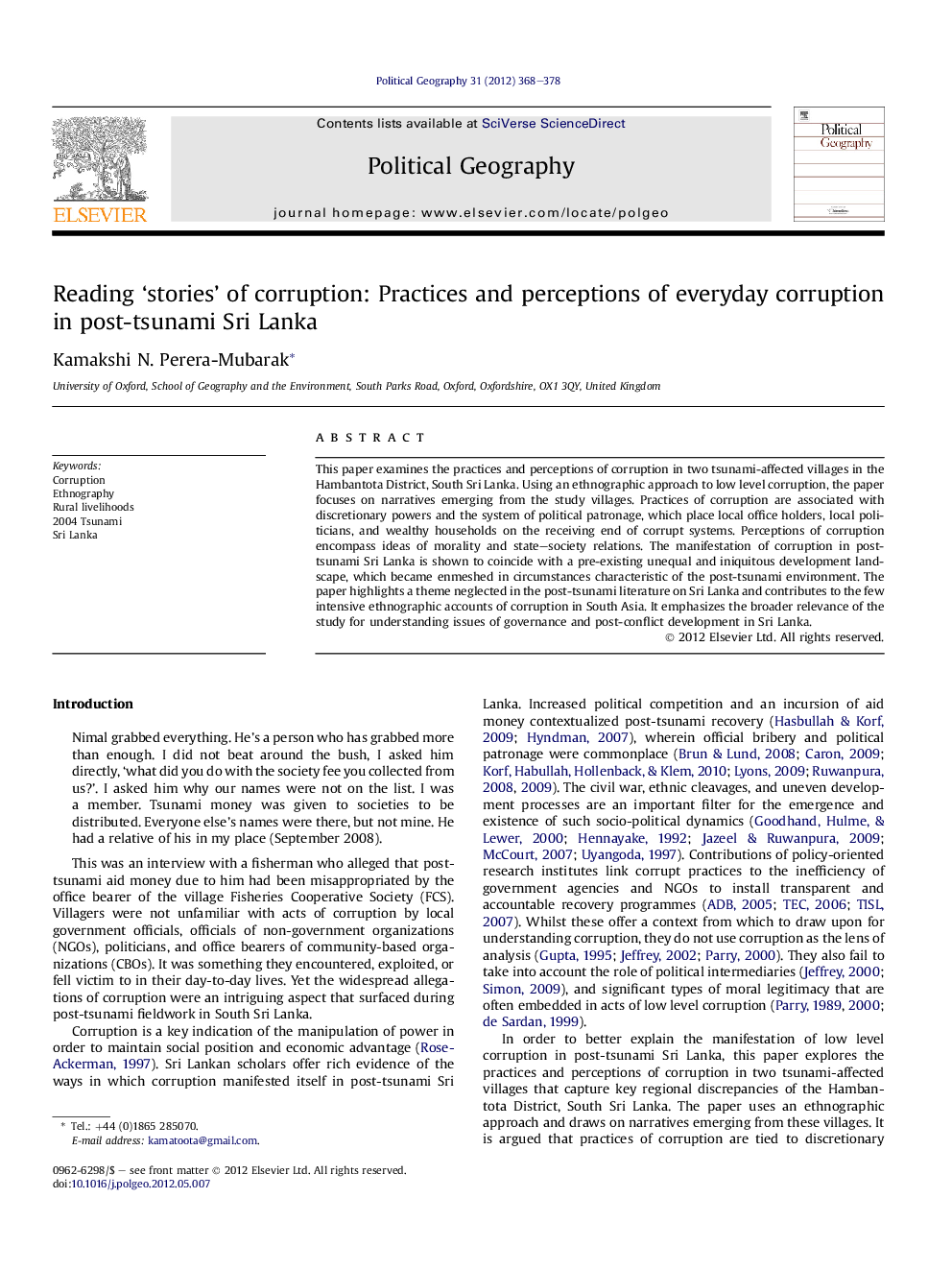| کد مقاله | کد نشریه | سال انتشار | مقاله انگلیسی | نسخه تمام متن |
|---|---|---|---|---|
| 1062036 | 947928 | 2012 | 11 صفحه PDF | دانلود رایگان |

This paper examines the practices and perceptions of corruption in two tsunami-affected villages in the Hambantota District, South Sri Lanka. Using an ethnographic approach to low level corruption, the paper focuses on narratives emerging from the study villages. Practices of corruption are associated with discretionary powers and the system of political patronage, which place local office holders, local politicians, and wealthy households on the receiving end of corrupt systems. Perceptions of corruption encompass ideas of morality and state–society relations. The manifestation of corruption in post-tsunami Sri Lanka is shown to coincide with a pre-existing unequal and iniquitous development landscape, which became enmeshed in circumstances characteristic of the post-tsunami environment. The paper highlights a theme neglected in the post-tsunami literature on Sri Lanka and contributes to the few intensive ethnographic accounts of corruption in South Asia. It emphasizes the broader relevance of the study for understanding issues of governance and post-conflict development in Sri Lanka.
► The paper examines practices and perceptions of corruption in post-tsunami Sri Lanka.
► Corruption links with discretionary powers and the system of political patronage.
► Corruption encompasses ideas of morality and state–society relations.
► Corruption benefits local office holders, local politicians and wealthy householders.
► Ethnography is crucial for studying informal politics and change in South Asia.
Journal: Political Geography - Volume 31, Issue 6, August 2012, Pages 368–378